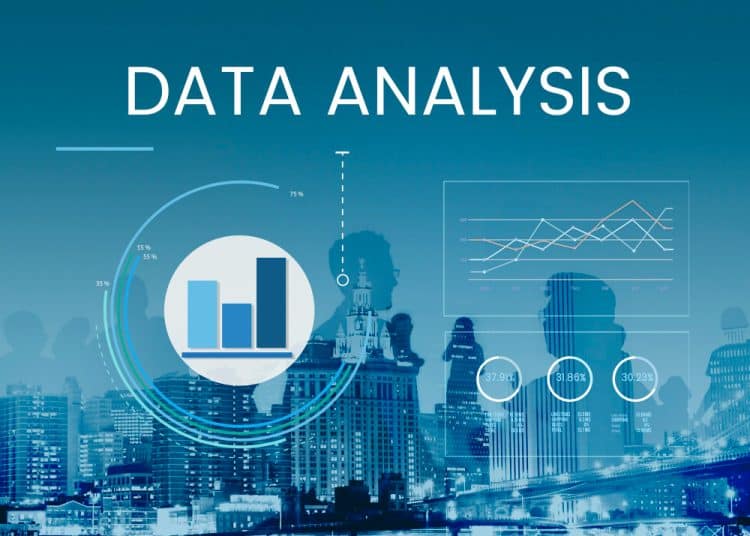In the modern digital world, the use of software has become indispensable for legal professionals, organizations, and individuals alike. eDiscovery, short for electronic discovery, identifies, collects, and preserves electronically stored information (ESI) for legal purposes. The reliance on digital data in legal cases has led to the evolution of modern eDiscovery tools such as eDiscovery software, making them essential in the legal world. This article will delve into the key features of modern eDiscovery tools, shedding light on their significance and capabilities.
Robust Search and Retrieval Capabilities
Modern eDiscovery tools are renowned for their robust search and retrieval capabilities. They employ advanced algorithms and indexing techniques, allowing users to search vast electronic data efficiently.
These tools can pinpoint relevant information swiftly, saving time and effort in the discovery process. Whether you are looking for emails, documents, or any other ESI, the software can quickly locate and retrieve them, streamlining the legal investigation process.
The search capabilities of these tools are akin to having a digital magnifying glass that can sift through mountains of data with precision. This feature is particularly crucial in litigation, where time is often of the essence. Lawyers can use these tools to find specific keywords, phrases, or metadata to build a stronger case.
Moreover, the ability to search across diverse data sources, such as emails, databases, and cloud storage, makes modern eDiscovery tools indispensable in today’s complex legal landscape.
Comprehensive Data Collection
Efficient data collection is a cornerstone of eDiscovery, and contemporary eDiscovery tools excel. They can collect data from various sources, including emails, social media platforms, cloud storage, and more. This versatility ensures that no stone is left unturned when gathering electronic evidence.
Additionally, these tools maintain the integrity of the collected data through secure processes, ensuring that it remains admissible in court.
Modern eDiscovery tools offer a unified approach to data collection, making it seamless and systematic. They can perform automated data preservation, capturing information without altering the original format.
This is crucial for maintaining the authenticity and admissibility of evidence in legal proceedings. With the ability to collect data from various sources, these tools empower legal professionals to compile comprehensive datasets that leave no room for oversight.
Advanced-Data Processing and Analysis
This software goes beyond data collection; it offers advanced processing and analysis capabilities. These tools can sift through massive datasets, categorize documents, and identify patterns or keywords relevant to a case.
This feature is invaluable for legal professionals, enabling them to gain insights from the collected data swiftly. The ability to analyze data efficiently can significantly impact the outcome of a legal matter.
Modern eDiscovery tools are data detectives, helping legal professionals uncover hidden gems within the digital haystack. They use machine learning and artificial intelligence algorithms to classify documents, cluster related information and even predict the relevance of specific data points.
This not only speeds up the review process but also enhances the quality of the analysis, allowing lawyers to build stronger arguments and make more informed decisions.

Collaborative Tools
Collaboration is integral in the legal field, and modern eDiscovery tools account for this need. They often have collaborative features facilitating communication and teamwork among legal professionals. Users can share findings, notes, and documents securely within the software, streamlining the collaborative efforts of legal teams and making the discovery process more efficient.
These collaborative tools within this software act as virtual meeting rooms for legal teams. They enable attorneys, paralegals, and other stakeholders to collaborate seamlessly, regardless of their physical locations.
This enhances productivity and ensures everyone involved in a case is on the same page. Furthermore, these tools often provide version control, ensuring that changes and annotations are tracked and documented accurately.
Data Security and Compliance
Maintaining the security and confidentiality of sensitive data is paramount in legal proceedings. Modern eDiscovery tools prioritize data security and compliance with industry regulations. They incorporate encryption, access controls, and audit trails to safeguard ESI. Moreover, these tools ensure compliance with legal standards, preventing data tampering and ensuring the collected evidence remains admissible in court.
Data security is at the forefront of eDiscovery tool development. These tools implement stringent security measures to protect sensitive information from unauthorized access or breaches. They often have features that allow administrators to set user permissions, ensuring that only authorized personnel can access certain data.
Audit trails provide a detailed history of actions taken within the software, which can be invaluable for maintaining transparency and accountability in legal proceedings.
Cost-Effective Solutions
While eDiscovery tools offer many sophisticated features, they also provide cost-effective solutions for legal professionals. Traditional discovery methods can be time-consuming and expensive. This software helps reduce costs associated with manual labor and streamlines the entire discovery process. This cost-efficiency makes it accessible to a broader range of legal practitioners and organizations.
The cost-effectiveness of modern eDiscovery tools stems from their ability to automate and optimize various aspects of the discovery process. By automating data collection, processing, and analysis, these tools significantly reduce the time and labor required to handle large volumes of electronic evidence.
This, in turn, leads to cost savings in terms of legal fees, as attorneys can work more efficiently. Additionally, the ability to scale resources up or down as needed ensures that eDiscovery tools are adaptable to the specific needs and budgets of different legal cases and organizations.
Conclusion
In conclusion, modern eDiscovery tools, like eDiscovery software, have become indispensable tools in the legal world. Their robust search and retrieval capabilities, comprehensive data collection, advanced data processing and analysis, collaborative tools, data security, and cost-effective solutions make them invaluable assets for legal professionals at government agencies, corporations, and law firms.
As the digital landscape evolves, eDiscovery tools will play an increasingly vital role in ensuring fair and efficient legal proceedings. Embracing these tools is no longer a choice — it’s a necessity for those seeking success in today’s legal arena.














Leave a Reply